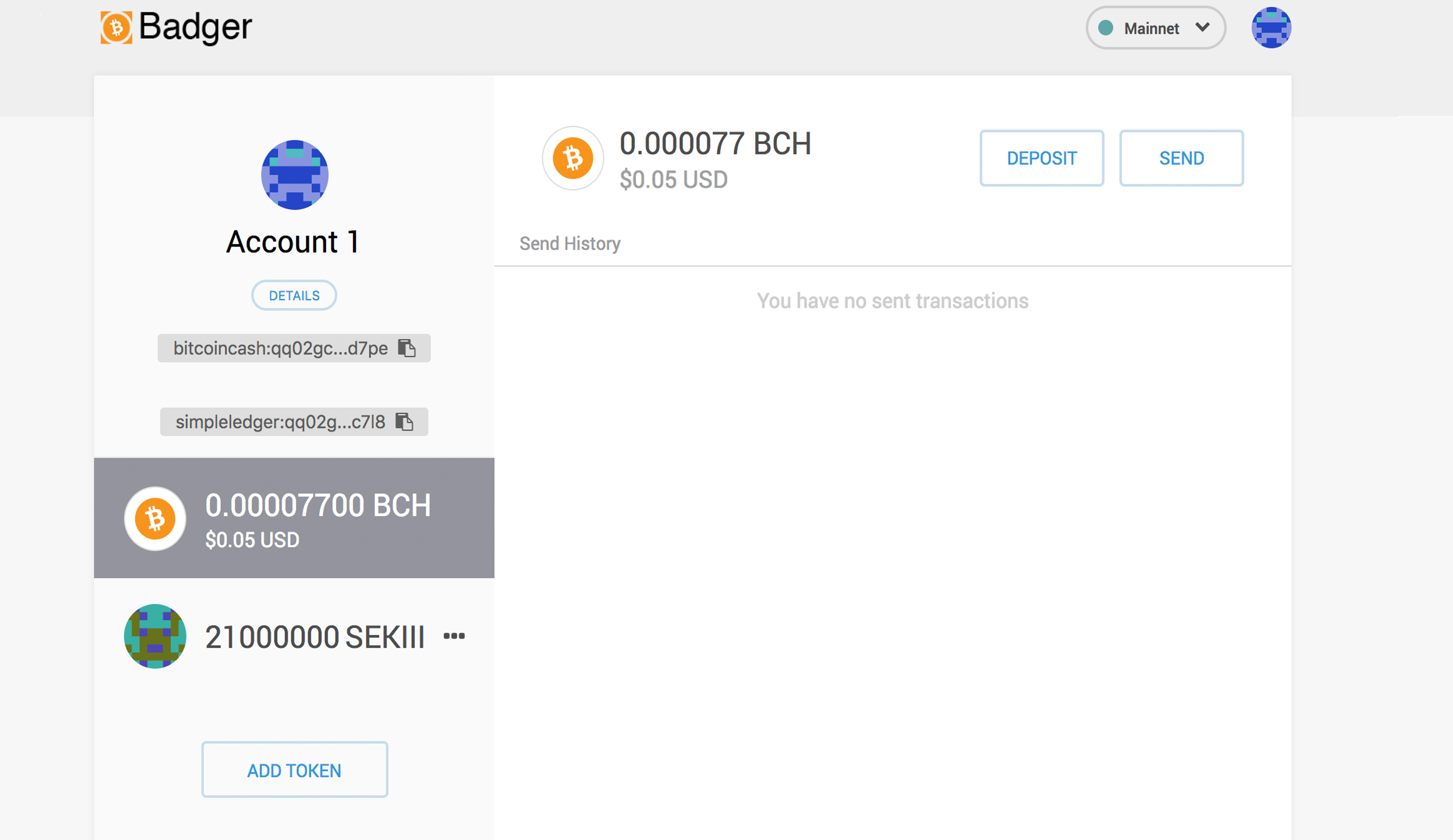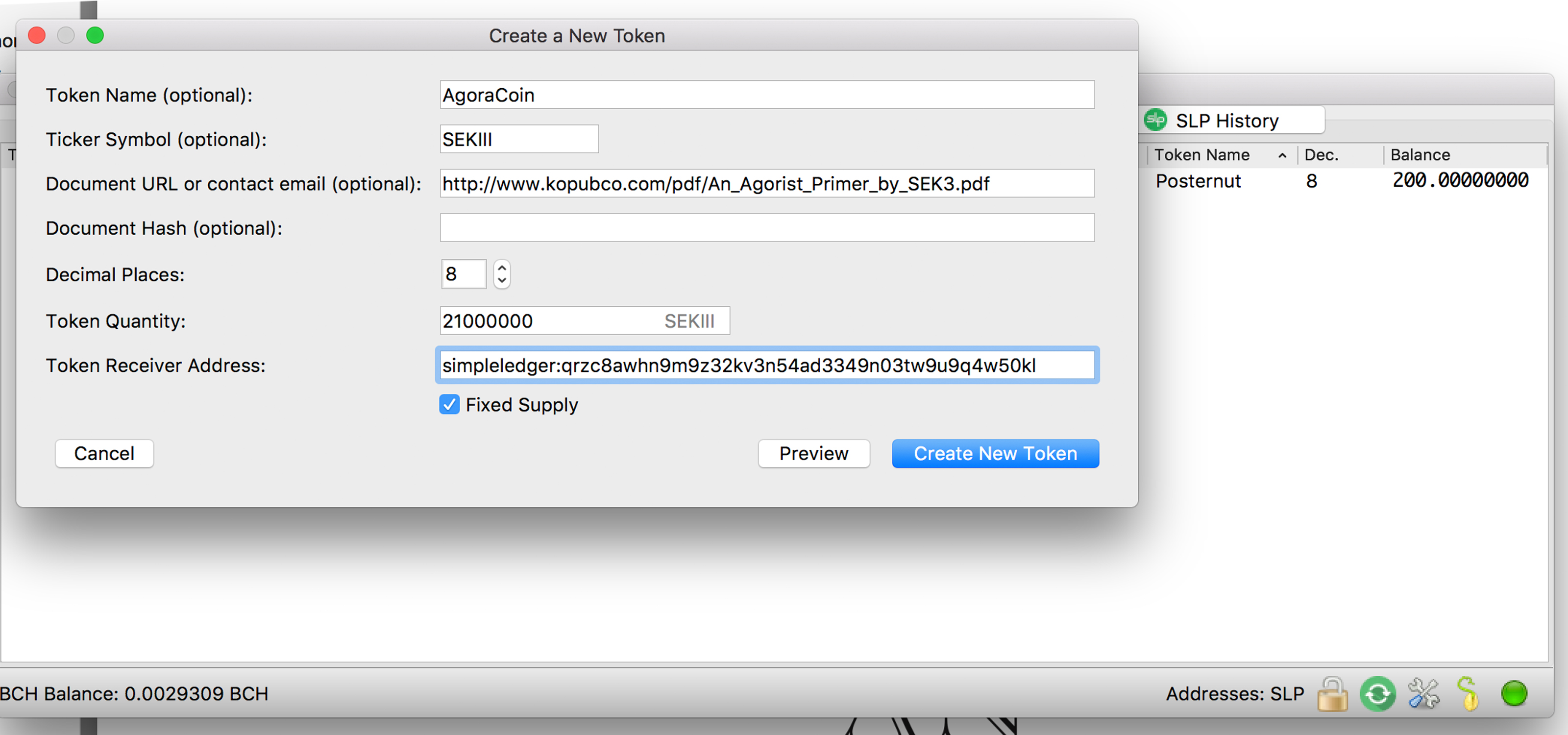On Wednesday, Nov. 7, the developers of the Badger Wallet announced the team had released Badger version 0.0.7, the first bitcoin cash wallet that supports sending and receiving both Wormhole and Simple Ledger Protocol tokens. Additionally, the wallet’s latest release includes a decentralized application programming interface (API), alongside Cash-ID authentication abilities.
Also read: Huobi Opens Office in Russia, Plans Startup Accelerator and Mining Hotels
Badger Wallet Now Supports Multiple Token Protocols
During the first week of October, a group of Bitcoin Cash (BCH) developers from the organizations Spendbch, Bitbox, 21st Century Motor Company, and the Simple Ledger Protocol (SLP) released a new BCH extension wallet called Badger that supports BCH-based tokens. News.Bitcoin.com had previously tested the wallet, but at the time the client did not support tokens. Now the application’s developers have released Badger version 0.0.7, an implementation that supports both Simple Ledger Protocol (SLP) and Wormhole tokens. The developers have explained on the Reddit forum r/btc that Badger is the first wallet client that supports bitcoin cash, tokens from two different projects, and BCH-powered decentralized applications.

The Badgerwallet.cash website provides downloads for both Firefox and Google Chrome browsers. Anyone familiar with the Metamask wallet for Ethereum and ERC-20 tokens will find that Badger’s wallet is very similar. The wallet is fairly intuitive for anyone with basic knowledge of cryptocurrency wallets as well as basic bitcoin cash transactions.
For users who want to utilize the more advanced features, Badger 0.0.7 can also create a payment button that acts as a paywall for content. For instance, Spendbch published instructions on how people can create a custom Badger payment button with just 23 lines of code. The Badger developers have also produced a working demo of the payment button which can be tested on the website.

Testing the Badger Client’s New Feature by Sending 21 Million SLP Tokens
Badger allows applications to authenticate an account with the Cash-ID protocol which can also provide more efficiency by showing previously purchased content. The Cash-ID concept is an open protocol developed by Jonathan Silverblood and it provides users with the ability to sign in to web pages and unlock content by using their bitcoin cash keys. The Badger wallet currently uses a bitcoin cash address for demonstration for Wormhole tokens and a Simple Ledger address for SLP tokens.

News.bitcoin.com previously tested the SLP version of Electron Cash and created some demo SLP tokens called Agoracoins. After downloading the new Badger client we decided to test Badger again and sent 21 million Agoracoins to the wallet. The tokens were broadcast to the wallet almost instantly and the transactions can be viewed on the SLP token explorer. Wormhole tokens require one confirmation before updated balances are displayed on the Badger interface.
Over the last few months, there has been a lot of token projects out there like the Cashpay Solutions BCH Colored Coins project, Clemens Ley’s Bitcoin Token project, and the Keoken platform launched by the Bitprim development team. Badger wallet doesn’t issue tokens but has managed to add two types of tokens into a desktop extension wallet and seems to be open to various token protocols. However, Badger does have its own token called BGR and developers have explained the creation will be the utility token of the Badger platform. According to the website, applications that accept the token will get discounted time on Bitbox Cloud and BGR will be used for other types of service discounts.
What do you think about the latest Badger Wallet release and the Wormhole and SLP token support? Let us know what you think about this subject in the comments section below.
Images via Shutterstock, Badger Wallet, Electron Cash, and SLP.
Need to calculate your bitcoin holdings? Check our tools section.
The post Latest Release of Badger Wallet Supports SLP and Wormhole Tokens appeared first on Bitcoin News.














